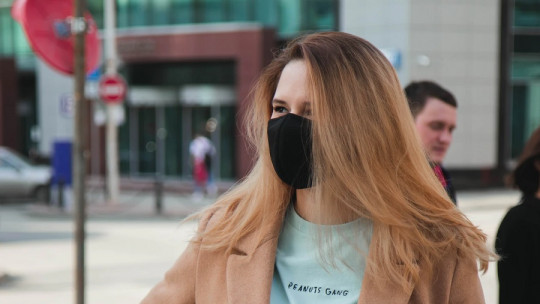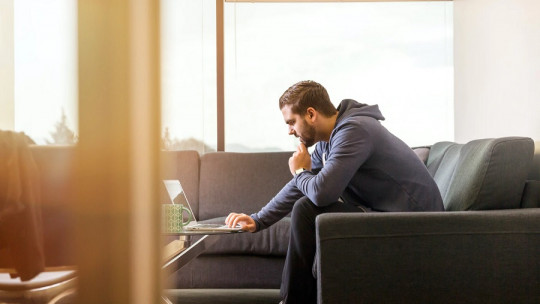
Pandemic fatigue is one of the phenomena that shows the psychological impact of the COVID-19 crisis. And the way in which the pandemic affects us psychologically is not limited to the fear of becoming infected or the experience of having loved ones going through the disease: the entire social context has been transformed in response to the spread of the virus, and adapting to This new reality can be complicated.
That is why what happened during the coronavirus crisis has triggered many anxiety problems. In this article we will see some keys about what to do in the face of this phenomenon caused by pandemic fatigue.
How does pandemic fatigue arise?
Pandemic fatigue is a psychological state characterized by emotional discomfort combined with the experience of apathy or demoralization due to the pressure we feel after months of suffering from a pandemictrying to adapt to a reality in which we cannot live as we always did.
This phenomenon combines elements associated with excess anxiety, and on the other hand, disorientation and demotivation caused by the impoverishment of the stimuli and incentives to which we had access. That is to say, on the one hand, both the fear of contagion and the prevention measures to stop the pandemic make us feel stress or directly anguish and fear, and on the other, our daily life is limited to many fewer actions due to the social context. and economic crisis. If we add to this the time factor, which implies having to experience the constant postponement of the “return to normality”, the result is that the pandemic causes us to burn out emotionally and worsens the mental health of many people.
Now, there is no single way in which pandemic fatigue leads to anxiety problems or other emotional maladjustments. Precisely because the coronavirus crisis and other similar ones have a global impact on society, each person lives this experience in different ways: some suffer more from the fear of being left without income, others from not being able to have the social life they would like, others from the fear of losing family members, etc. In any case, it is possible to detect sources of stress and anguish that usually affect many people:
What can be done to manage the anxiety generated by this context?
As we have seen, the context of the global pandemic and the restrictions associated with this creates the perfect breeding ground for anxiety problems to appear, either through anxiety disorders such as phobias or generalized anxiety, or through excess stress and anguish but without constituting psychopathology. Now, in the face of these emotional imbalances, it is possible to take measures, both from prevention and from the management of anxiety once it is present in us.
Of course, the best way to move forward in this regard is to attend psychotherapy; Psychologists are trained to deal with each individual case and provide the appropriate tools that the person we care for needs, taking into account their particularities, and monitoring their progress. However, there are also some strategies that can be applied by oneself and that generally help manage anxiety. Below we will see several of the most important ones.
1. Maintain a healthy lifestyle
Physical well-being is closely connected to emotional well-being: If your body is in good shape, it will have more resources to maintain proper functioning of the nervous and endocrine systems, with all that this implies for your mental health. Therefore, it is important that even though COVID-19 has meant the curtailment of some freedoms, you do not give up maintaining a physically active lifestyle or eating healthily.
2. Control your exposure to bad news
As I have mentioned, anxiety is fueled by being exposed to a constant bombardment of bad news, something that has intensified in these times of COVID-19. That’s why, It is recommended that you make a deliberate effort to control the time you spend surfing the Internet, not just reading texts of this type.but receiving headlines of this type.
For example, look at which outlets are most likely to broadcast pessimistic news, and stop to think if you can do something to prevent them from having that influence on you (for example, by canceling a subscription).
3. Try Mindfulness
Many people benefit from Mindfulness as a regular practice that helps keep anxiety under control. Besides, There are several types of Mindfulness exercises, some of which are so simple to do that you will only need to follow the instructions in a short audio, lasting a few minutes. You can incorporate this habit at key times of the day when it is convenient for you to disconnect.
4. Start projects
Given the withdrawal of some incentive systems associated with face-to-face social life or physically going to various places, it is important that you create other sources of motivation and satisfaction. Therefore, plan projects that are meaningful to you, whether they are only on a personal level or also have professional implications. These projects will provide you with several goals and sub-goals that will provide your life with experiences of progress and direction towards something that is important to you.: write a book, launch a website, learn a new language…
5. Structure your day to day
Staying at home longer than usual makes some people neglect time management, having the feeling that the hours are passing and everything remains the same. That’s why, It is advisable to follow schedules and, above all, be very clear when you have to go to sleep.: Lack of sleep is an anxiety bomb.








